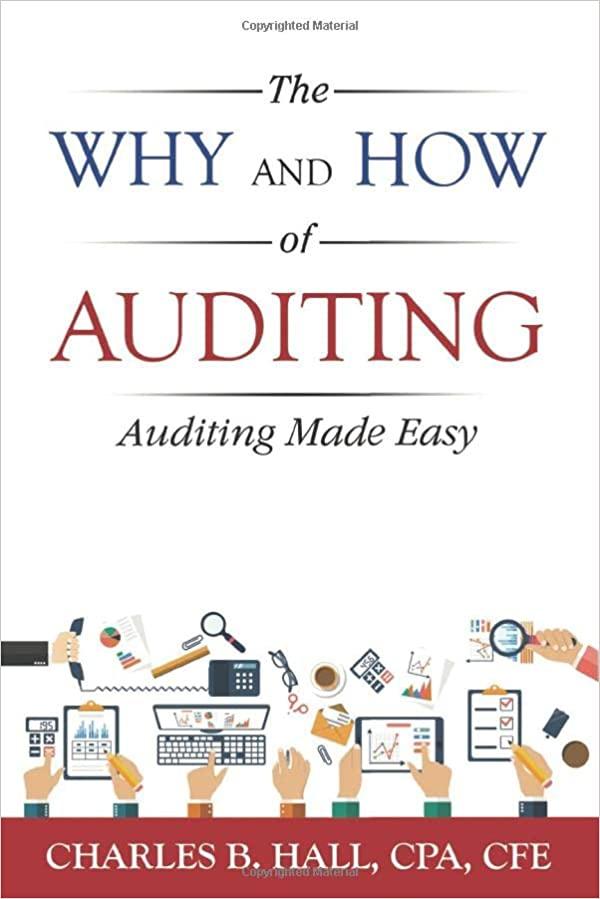
INDIVIDUAL - Assignment IV QUESTION 1) (30 pts)You are assigned to audit ABC Inc.'s financial statements. This company is operating in retail industry with 1,200 branches in all around the world. Following the international audit standards, you rated the risks as high, medium, or low for the given cycles. Payroll and Capital Inventory and Sales and Personnel Acquisition Warehousing Collection Cycle Cycle Cycle Cycle Acceptable audit risk Low High High Inherent risk High Low Low Low Control risk High Medium Planned detection risk Planned evidence Low Low Low Required: a) Fill in the blanks using the terms high, medium, or low. (10 pts) For (b) to (e) please consider the firm's operations. Otherwise your comment will not be accepted. b) Provide ONE possible reason of your rating Low for Acceptable Audit Risk at Capital Acquisition Cycle. (5 pts) (50 words) c) Provide ONE possible reason of your rating HIGH for Control Risk at Payroll and Personnel Cycle. (5 pts) (50 words) d) Provide ONE possible reason of your rating MEDIUM for Control Risk at Inventory and Warehousing Cycle. (5 pts) (50 words) e) Provide ONE possible reason of your rating Low for Inherent Risk at Sales and Collection Cycle. (5 pts) (50 words) QUESTION 2) (20 pts, 4 pts each) Match the terms below (a-e) with the definitions provided below (1-5). a. inherent risk, b. planned detection risk, c.acceptable audit risk, d. control risk, e.materiality 1. a measure of the risk that audit evidence for a segment will fail to detect misstatements exceeding the performance materiality amount, should such misstatements exist 2. a measure of the auditor's assessment of the likelihood that misstatements exceeding a performance materiality in a segment will not be prevented or detected by the client's internal controls 3. a measure of how much risk the auditor is willing to take that the financial statements may be materially misstated after the audit is completed and an unqualified audit opinion has been issued 4. the magnitude of an omission or misstatement of accounting information that makes it probable that the judgment of a reasonable person would have been changed 5. a measure of the auditor's assessment of the likelihood that there are material misstatements before considering the effectiveness of internal control INDIVIDUAL - Assignment IV QUESTION 1) (30 pts)You are assigned to audit ABC Inc.'s financial statements. This company is operating in retail industry with 1,200 branches in all around the world. Following the international audit standards, you rated the risks as high, medium, or low for the given cycles. Payroll and Capital Inventory and Sales and Personnel Acquisition Warehousing Collection Cycle Cycle Cycle Cycle Acceptable audit risk Low High High Inherent risk High Low Low Low Control risk High Medium Planned detection risk Planned evidence Low Low Low Required: a) Fill in the blanks using the terms high, medium, or low. (10 pts) For (b) to (e) please consider the firm's operations. Otherwise your comment will not be accepted. b) Provide ONE possible reason of your rating Low for Acceptable Audit Risk at Capital Acquisition Cycle. (5 pts) (50 words) c) Provide ONE possible reason of your rating HIGH for Control Risk at Payroll and Personnel Cycle. (5 pts) (50 words) d) Provide ONE possible reason of your rating MEDIUM for Control Risk at Inventory and Warehousing Cycle. (5 pts) (50 words) e) Provide ONE possible reason of your rating Low for Inherent Risk at Sales and Collection Cycle. (5 pts) (50 words) QUESTION 2) (20 pts, 4 pts each) Match the terms below (a-e) with the definitions provided below (1-5). a. inherent risk, b. planned detection risk, c.acceptable audit risk, d. control risk, e.materiality 1. a measure of the risk that audit evidence for a segment will fail to detect misstatements exceeding the performance materiality amount, should such misstatements exist 2. a measure of the auditor's assessment of the likelihood that misstatements exceeding a performance materiality in a segment will not be prevented or detected by the client's internal controls 3. a measure of how much risk the auditor is willing to take that the financial statements may be materially misstated after the audit is completed and an unqualified audit opinion has been issued 4. the magnitude of an omission or misstatement of accounting information that makes it probable that the judgment of a reasonable person would have been changed 5. a measure of the auditor's assessment of the likelihood that there are material misstatements before considering the effectiveness of internal control







